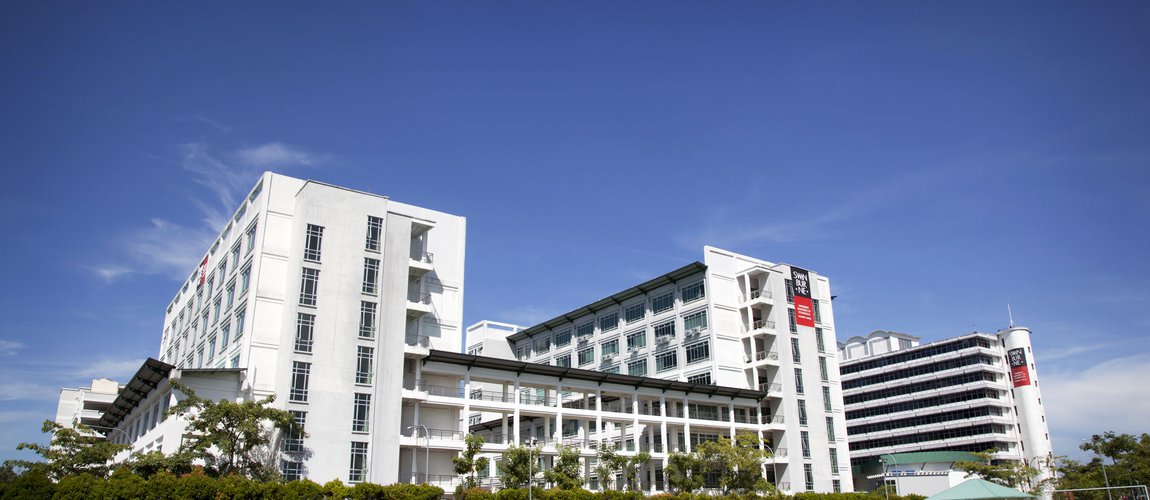Mechanical Engineering Course in Malaysia : Complete Guide for International Students

- Home
- Specialization
- Mechanical Engineering
Study Mechanical Engineering Course, Fees, Admission, Top Universities in Malaysia
What is Mechanical Engineering
The designing, constructing and operating of innovative machines, devices, and systems are done by Mechanical Engineers by using the Principles of Physics, Engineering, Mathematics, and material science. Mechanical Engineering is one of the expansive engineering disciplines. Anything that involves force, energy or motion involves Mechanical Engineering. Since it involves the design and work with all types of mechanical systems, careers in this field stretch across almost all industries including aerospace, robotics, entertainment and many more. Taking this course will make you one step closer to building the next big energy-efficient jet engine, robots or even roller coaster rides.
While studying Mechanical Engineering in Malaysia, you will learn that this specialisation is one of the oldest and widest areas of Engineering. It is almost used in every field; from Oil & Gas, entertainment, manufacturing, healthcare, Aerospace and many more. Mechanical Engineering includes making of both large pieces of machinery as well as its small moving components like sensors, lasers which are used in surgeries, in vehicles, aircraft, etc.

List of Mechanical Engineering Universities in Malaysia with courses

Courses:
70World Rank:
Scholarship: Yes

Courses:
184World Rank:
269Scholarship: Yes

Courses:
27World Rank:
Scholarship: Yes

Courses:
36World Rank:
851-900Scholarship: Yes

Courses:
106World Rank:
Scholarship: Yes

Courses:
64World Rank:
Scholarship: Yes

Courses:
96World Rank:
Scholarship: Yes

Courses:
34World Rank:
251Scholarship: Yes

Courses:
44World Rank:
551Scholarship: Yes

Courses:
145World Rank:
Scholarship: Yes

Courses:
87World Rank:
Scholarship: Yes

Courses:
45World Rank:
174Scholarship: Yes

Courses:
17World Rank:
256Scholarship: Yes

Courses:
19World Rank:
134Scholarship: Yes

Courses:
56World Rank:
Scholarship: Yes

Courses:
97World Rank:
791-800Scholarship: Yes

Courses:
118World Rank:
613Scholarship: Yes

Courses:
41World Rank:
Scholarship: Yes

Courses:
41World Rank:
1201-1400Scholarship: Yes

Courses:
26World Rank:
Scholarship: Yes

Courses:
57World Rank:
134Scholarship: Yes

Courses:
90World Rank:
153Scholarship: Yes

Courses:
74World Rank:
509Scholarship: Yes

Courses:
87World Rank:
108Scholarship: Yes

Courses:
66World Rank:
Scholarship: Yes

Courses:
91World Rank:
58Scholarship: Yes

Courses:
28World Rank:
291Scholarship: Yes

Courses:
44World Rank:
609Scholarship: Yes

Courses:
22World Rank:
Scholarship: Yes

Courses:
80World Rank:
253Scholarship: Yes

Courses:
81World Rank:
638Scholarship: Yes

Courses:
16World Rank:
638Scholarship: Yes

Courses:
25World Rank:
Scholarship: Yes

Courses:
157World Rank:
597Scholarship: Yes

Courses:
39World Rank:
146Scholarship: Yes

Courses:
74World Rank:
899Scholarship: Yes

Courses:
208World Rank:
126Scholarship: Yes

Courses:
89World Rank:
1001-1200Scholarship: Yes
Duration to study Mechanical Engineering in Malaysia for International Students
Mechanical engineering degrees usually last for three or four years at the undergraduate level and one or two at the master's level. Graduates receive a BEng or a Mechanical Engineering qualification upon completion of their studies. Mechanical Engineers have different skills such as computer applications, structure, electricity, mathematics, physics, and economic factors.
Mechanical engineers typically require a bachelor’s degree in mechanical engineering. The course spans over 4 years, where students learn the basics of engineering and core Mechanical Engineering subjects.
Common subjects taught in this course include;
- Computing for Engineers
- Engineering Design
- Thermodynamics
- Fluid Mechanics
- Computer-Aided Design (CAD)
- Solid Mechanics
- Heat Transfer
- Control System
- Engineering Dynamics
Entry Requirements for Mechanical Engineering Degree in Malaysia
|
STPM |
CGPA 2.00 including Mathematics and Physics/ Chemistry |
|
Foundation/ Matriculation |
Pass with a minimum CGPA 2.00 |
|
A-Levels |
Minimum grade range of CCC to BBB including Mathematics and Physics / Chemistry |
|
UEC |
Grade B in 5 subjects including Mathematics & Physics |
|
Diploma |
Minimum CGPA 2.00 |
|
International Baccalaureate (IB) |
Minimum of 24 points |
*The requirements may vary among universities, for inquiries on other entry requirements, contact EducationMalaysia.in.
Planning to Pursue a Degree in Mechanical Engineering In Malaysia
- A-Level: Minimum 2Es including Maths and Physics; or
- STPM: Minimum 2Cs including Maths and Physics; or
- Australian Matriculation: Minimum average ATAR of 65 including Maths and Physics; or
- Foundation in Science: Minimum CGPA of 2.00; or
- Diploma: Minimum CGPA of 2.00
Additionally, you will require to pass the Malaysian University English Test (MUET) Band 2 and get at least a pass in English for your admission to Mechanical Engineering Degree.
How much does it cost to study a Mechanical Engineering course in Malaysia?
|
Programme |
Estimated Fees |
|
Foundation/ A levels |
RM15,000 – RM 30,000 |
|
Bachelor's Degree |
RM65,000 – RM190,000 |
|
Masters Degree |
RM 75,000 – RM125,000 |
|
PhD |
RM 75,000 – RM125,000 |
List of Top 5 Universities to Study Mechanical Engineering Degree in Malaysia
#1 Nottingham University, Malaysia
|
Program |
BEng/MEng (Hons) Mechanical Engineering |
|
Intake |
September |
|
Duration |
BEng: 3 years/ MEng: 4 years |
|
Indicative Annual Fees |
|
#2 Monash University, Malaysia

Monash University for Mechanical Engineering in Malaysia
|
Program |
Bachelor of Mechanical Engineering (Honours) |
|
Intake |
February, July & October. |
|
Duration |
4 years (Full time) |
|
Indicative Annual Fees |
|
#3 Taylor’s University

|
Program |
Bachelor of Engineering in Mechanical Engineering (Honours) |
|
Intake |
January, March & August |
|
Duration |
4 years (Full time) |
|
Indicative Fees |
|
#4 Swinburne University, Malaysia

|
Program |
Bachelor of Engineering (Honours) (Mechanical) |
|
Intake (2021) |
March, August & October |
|
Duration |
4 years (Full time) |
|
Indicative Annual Fees (2021) |
Local Students: RM32,560 International Students: RM41,200 |
#5 SEGi University

|
Program |
Bachelor of Mechanical Engineering with Honours (Dual Degree Award with University of Central Lancashire, UK) |
|
Intake (2021) |
January, May, July, September & October |
|
Duration |
4 years (Full Time) |
|
Indicative Fees (2021) |
|
Careers Options with a Mechanical Engineering Degree
Mechanical engineering graduates are employed by a number of different industries. Mechanical engineers can be found in industries such as automotive, pharmaceutical, construction, oil and gas and so on. The roles and responsibilities vary in different industry. The general roles and responsibilities in these industries include; A graduate can seek employment from a wide range of industries from Automotive and Energy and or research and Consultancy too.
- Automotive Industry: Mechanical engineers may design new products and in some cases modify those currently They solve engineering problems using mechanical, electrical, hydraulic or thermodynamic principles as well as develop prototypes of components and test their performance to ensure safety.
- Pharmaceutical Industry: Mechanical engineers will be responsible for designing, testing and developing machinery and equipment such as boilers, Heat and Ventilation and Air-Conditioning (HVAC) and water systems. They also improve equipment performance and provide a daily inspection to identify equipment breakdown or system malfunction.
- Construction Industry: Mechanical engineers work on designing the heating, air conditioning and smoke ventilation systems that make up buildings such as hospitals, offices and shopping malls, airports and railway stations.
- Oil and Gas Industry: Mechanical engineers are involved in the design, development, installation and maintenance of mechanical plants, equipment and machinery such as pumps, engines, turbines, which are used for processing and producing oil and gas at either onshore or offshore production.






